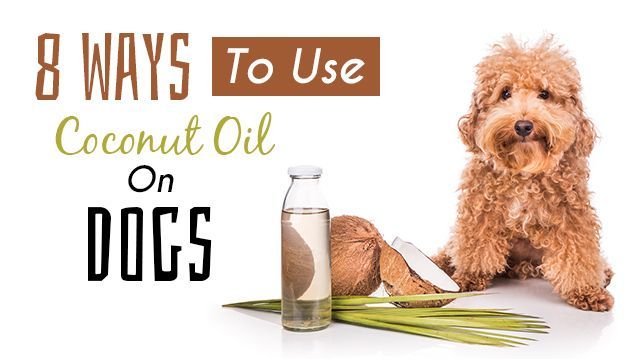
For most dogs, a small amount of coconut oil twice daily delivers plenty of benefits. Emphasis on the small — even a big dog shouldn’t ingest more than a teaspoon of coconut oil at one time. Always consult your veterinarian before using coconut oil or any other product on your dog and get recommendations on the appropriate amount for your pet.
Skin allergies
Many dogs suffer from atopy, or skin allergies. Causes vary from fleas to food, pollen and molds, but the result is incessant scratching, open sores and absolute misery. Although it is crucial to find out exactly what type of allergen is affecting your pet, applying coconut oil to skin lesions helps soothe and clear them up. It’s also useful for other skin issues, including eczema and contact dermatitis. One caveat: In some dogs, coconut oil can actually cause an allergic reaction. Stop using it if the coconut oil aggravates your dog’s skin ailment.
Dry skin
If dry skin on his paw pads or nose bothers your pooch, a little coconut oil rubbed into his skin provides moisture and prevents or relieves dryness. Coconut oil makes short work of dandruff. You can rub small amounts on your hands and rub it onto the skin beneath his coat to moisturize his body. Of course, your dog might decide it’s too tasty not to lick off.
Coat conditioner
Given orally, coconut oil helps improve your dog’s coat. Used topically, it makes his coat glossy and reduces odor. Once again, he’ll probably lick off the coconut oil he can reach unless you use an Elizabethan collar — the so-called “cone of shame” — on him for a while after application. Use coconut oil on his coat about once a week for optimum shine.
An alternative — with no need for a cone of shame — is conditioning his coat with coconut oil and sitting with him for five minutes so he doesn’t start licking. Then use a mild shampoo to wash your pet and rinse off the oil.
Digestive aid
Coconut oil improves your dog’s digestion and increases his nutrient absorption. However, it can initially cause loose stools in some dogs, so add some canned pumpkin to his food if that’s an issue. Dogs with bowel problems, including colitis, may benefit from the addition of coconut oil to the diet. Dogs with poor bowel absorption because of lymph node inflammation in the intestinal tract, a condition known as lymphangiectasia, may improve with the addition of coconut oil.
Fungal and yeast infections
Coconut oil contains antifungal properties, so it can help your dog battle a fungal or yeast infection. Symptoms of fungal or yeast infections include smelly, balding, red patches on the skin. Consult your vet for a definite diagnosis before treating a fungal/yeast infection with coconut oil.
Wound healing
Because of its antiviral and antibacterial properties, topical application of coconut oil can help wounds heal. Dab a bit on cuts and sores, but take your dog to the vet if he has a serious wound.
Better breath
If your best friend suffers from bad dog breath, coconut oil can help his breath smell better. Try brushing his teeth with it. If you haven’t had success brushing his teeth with conventional canine toothpaste, he may make an exception for coconut oil. However, very bad breath in dogs is often an indication of a serious dental or medical problem, so take your pet to the vet if his breath really stinks.
Senior dogs
Coconut oil may help stave off cognitive decline or canine dementia in older dogs. There is anecdotal evidence that it may aid dogs with arthritis and other degenerative diseases of old age.
Coconut oil risks
Coconut oil adds fat to the diet, so if your dog is already overweight, it’s probably not a good supplement. If your dog has been diagnosed with pancreatitis or hyperlipidemia — serious conditions arising from elevated fat levels — he should not consume coconut oil.
—Jane Meggitt
Jane Meggitt graduated from New York University and worked as a staff writer for a major New Jersey newspaper chain. Her work on pets, equines and health have appeared in dozens of publications, including The Daily Puppy, The Nest Pets, Horse News, Hoof Beats and Horseback magazines.
Sources:
http://www.petmd.com/dog/nutrition/coconut-oil-dogs-understanding-benefits-and-risks?utm_source=Facebook&utm_medium=SocialMedia&utm_campaign=petMD_CoconutOilForDogsUnderstandingtheBenefitsandRisks_04152016#
http://www.sitstay.com/blogs/good-dog-blog/37662913-coconut-oil-for-dogs-the-ultimate-guide
http://www.dogsnaturallymagazine.com/the-health-benefits-of-coconut-oil
http://www.dogster.com/lifestyle/ten-reasons-to-add-coconut-oil-to-your-dogs-diet
http://www.thedrakecenter.com/blogs/risks-and-benefits-coconut-oil-for-pets

